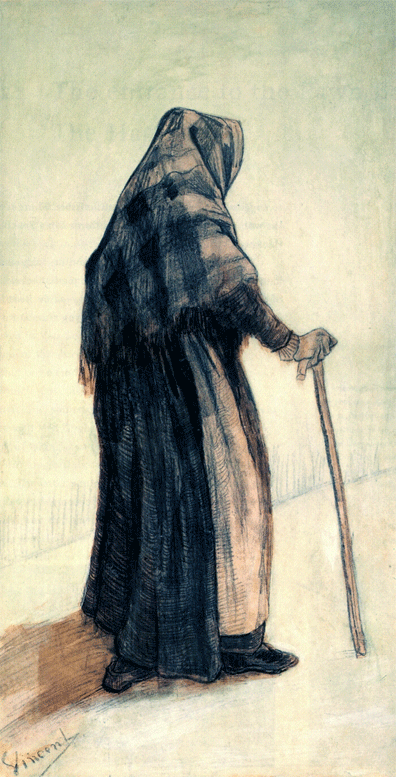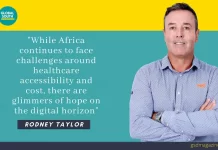By Luciana Grosu
Door knocking followed by a welcoming voice. The doctor and the social assistant step in loaded with heavy bags: the monthly aid consisting of food and hygiene products. The food package is received with dignity. The 75 years-old elderly lady thanks CARP Omenia’s team and then lets the doctor start the consultation. The patient narrates the history of her illness, while also revealing more details about the physical pain she endures on a daily basis. She is not complaining, but merely exposing facts. She can hardly hear or see, but she is still very happy about the visit.
Highlights
- “Quite often, patients cannot afford the prescribed medicines. They can hardly afford eating. So at my next monthly visit, I find them in the same health state, or even worse”, says doctor Cristina Codreanu who admits that is one the most frustrating parts of her otherwise beautiful job.
- Elderly people living alone who need a bit of help with housekeeping, shopping or other chores are usually not considered disabled and do not receive any form of support.
- There are indeed elderly people who die of hunger, alone in their homes. We often hear about such cases, but there’s not much we can do about it”, admits Lisei Maria.
Half an hour later, in another house and on another bed, the 93 year-old lady is crying. Everything hurts, every part of the body, but also the soul, because she feels that she has become a burden for her daughter who works during the day and stays awake almost the whole night to take care of her. The doctor is pretty much helpless as most pains are due to old age, hyper-tension and a weakened heart. Mostly irreversible conditions. The social assistant tries to comfort her, but the old lady is almost completely deaf. She can no longer watch TV, sleep, walk or bathe alone. But she is very much lucid and terribly aware of her condition. After a short phone conversation with the temporarily absent daughter, the domiciliary care team leaves the house wondering whether they will find the old lady alive at their next monthly visit.
It’s been a long day. “Are you sure you can afford this medicine?”, asks Cristina, a domiciliary care doctor, before writing the prescription. The 70 year-old man suffering from hip dislocation quickly nods, even if this might not be the case. An individual visit to the family practitioner would require supplementary time, and the painful effort of walking, not to mention queuing and possibly not being able to get the wanted medicine. The best solution is to accept the prescription offered at-home by CARP Omenia’s doctor and decide afterwards whether he can afford it or not.
Domiciliary care for the elderly – an unaddressed challenge
“Quite often, patients cannot afford the prescribed medicines. They can hardly afford eating. So at my next monthly visit, I find them in the same health state, or even worse”, says doctor Cristina Codreanu who admits that is one the most frustrating parts of her otherwise beautiful job.
CARP Omenia Bucharest’s domiciliary care program is one of the very few free-medical-services-at-home for the elderly in Romania. It targets 150 individuals from Bucharest and the surrounding areas. It is funded through public and donor funding and its aim is to provide the disabled elders with free medical health care and monthly food packages.
At the moment, there are very few similar free nonprofit domiciliary care programs in Romania and these only benefit a small number of elders, usually living in urban areas.
Dr. Cristina Codreanu explains that most of the domiciliary care program beneficiaries suffer from cardiovascular diseases, diabetes, and sleep problems associated with physical pain due to various medical conditions such as cephalalgia, myalgia, renal colic or arthralgia. Most of them are also severely depressed.
Sickness in old age seems to be a real curse whenever living in a developing country. Statistics show that 1 out of 5 elderly people in Romania need domiciliary care; however the in-home assistance services are often unaffordable or unavailable.
Services provided by charity organizations are usually available for a limited period of time (maximum 6-12 months), as nonprofits have limited resources and often need to rotate and replace beneficiaries in order to reach as many people as possible.
Public social assistance is only available in the form of financial aid (maximum amount 180 euro) and it is only granted to persons with severe disabilities. Elderly people living alone who need a bit of help with housekeeping, shopping or other chores are usually not considered disabled and do not receive any form of support.
Until today, the state has not implemented any free domiciliary care programs for the elderly, nevertheless, it does offer financial support to some associations and foundations who carry out social assistance programs. This is also the case of CARP OMENIA’s domiciliary care program, which is only partially sustained through public funds.
Care assistants –unavailable or unaffordable
As far as private in-home assistance services are concerned, these are often unaffordable and/or unavailable.
Affordability mostly depends on the elderly people’s ability to rely on financial aid provided by other family members. Even if the salary of a care assistant for the elderly is ten times smaller than the equivalent wage in the EU, millions of elderly people in Romania can not afford hiring a care assistant by themselves.
In practice, family members often step in, assuming the role of the care assistant and thus avoiding extra-spending they might otherwise would be unable to afford. In most extreme cases, families might decide to hire an assistant, but for only a few hours of work per week and only for a limited period of time.
Family members who take on this role often end up feeling burned-out and depressed, as the challenge of dividing their time between work, children, household chores and caring for the elderly is often impossible to meet.
Even wealthier families willing to hire a full time care assistant for an elderly may not be able to find one. Qualified individuals tend to leave the country. Several companies regularly organize specialization courses for care assistants specifically addressing those who plan to work abroad. A care assistant for elderly people has a salary which starts from euro 1000 and free accommodation if working full time in the European Union.
In these conditions, most persons willing to take care of the elderly flee the country. CARP Omenia Bucharest has only one hired care assistant. “We would like to hire 5 more care assistants but we have trouble finding qualified staff”, explains Gheorghe Chioaru ,CARP Omenia Bucharest‘s president.
 Being old and poor in Romania
Being old and poor in Romania
Most elderly patients know which drugs work best for them and which are of little effect. But the cost of medicines is a problem. The CARP Omenia doctor tries hard to prescribe mostly reimbursed drugs (the patient pays less for these medicines as part of their cost is covered by the government). Nevertheless, some medical conditions would respond best to drugs which are not reimbursable.
Being old in Romania often equals being poor. Romania’s population is younger compared to other EU countries, nevertheless, it is aging rapidly. Millions of retired professionals struggle to make a living and thousands of senior citizens are reduced to extreme poverty. Only a few of them are actually receiving the needed support to live a dignified life. Both government-funded and charity programs targeting third-age individuals are scarce and seldom designed with a long-term perspective in mind.
As a consequence, there are very few available entirely free services for the elderly. Medical care, known to be particularly expensive, is rarely, if ever, offered at no-cost. Retired professionals entitled to minimum pensions are usually being taken care of by their families. Poor elderly people without close relatives are very often isolated and receive little to no assistance. Rural areas are especially forgotten, with many elders living alone and having no access to medical care.
“Some elder people have lost all their family members and now live alone, only receiving one visit/week from a neighbour or a distant relative. In these conditions, poverty is not the only problem, but also the lack of support and human contact”, explains Dr. Cristina Codreanu.
Integrated care –an unmet goal
Lisei Maria, CARP Omenia’s Bucharest care assistant visits 2 families/day spending almost 3 hours in each household helping the elderly with hygiene maintenance, personal care, household chores, and other small daily tasks. She says she enjoys her work, because she loves elderly people’s sense of respectful communication. However, some cases are so serious that neither she, nor the domiciliary care medical team can do much about. In these cases monthly visits are absolutely insufficient, since most family members would require an ongoing medical care and/or a psychological support.
“Most of our patients would require daily monitoring of blood pressure and blood sugar level and the adjustment of treatment according to the results of these evaluations. Furthermore, the persons who are bedridden often develop bedsores and muscle atrophy and would need daily massage and passive gymnastics, as well as daily care for their damaged skins”, explains Dr. Cristina Codreanu.
Counseling and psychotherapy could also prove very useful .In those families with two or more members over 60 years old is really hard to say who is the most disabled or the most depressed.
” I don’t know what I will do if my mother passes away”, exclaims mournfully a 70-year-old woman who daily assists her bedridden 93-year-old mother. The older woman no longer talks, but gives penetrating looks to the medical team, as if trying to transmit an important message. Her daughter seeks the doctor’s approval.The diagnosis is indeed good, the old woman being in good condition and well-fed, if only for the fact that old age will continue to restrain the parent-daughter communication .Faced with such complex situations, the medical team can only whisper 1-2 words of comfort and hurry up to reach the next patient.
Charity programs –brilliant, but not enough
CARP Omenia’s model is quite unique. The organization is designed as a one stop shop, targeting both disabled and active elder people and aiming to respond to all needs of the elderly, such as, social, medical, psychological or practical.
In theory, membership in CARP Omenia could offer an individual with “everything in one place” medical assistance, socialization opportunities and the needed support to literally repair one’s household (shoe repair, radio/tv fix, and joiner’s workshop services). However, not all of these services are free of cost and not all individual members qualify for free financial aid.
In fact, the association is both a charity and a microloan organization. People can borrow money, but also benefit from free financial aid, if they meet certain conditions related to age, pension, and health condition.
CARP Omenia’s integrated services model is highly efficient when dealing with socially stranded individuals, reluctant to go and knock in several places, asking for help. This approach is safe and attractive for the elderly who are mostly seeking a sense of community and who are willing to invest time in exchange of continuous and integrated support. In this regard, CARP OMENIA’s president, Gheorghe Chioaru explains:” We have had visits from Belgian students of social assistance and they were all amazed to learn we actually offer so many services in only one place. In the EU, we often see similar organizations only providing one or two services, working aside from each other and not really trying to integrate their efforts”.
Nevertheless, despite the fact that CARP OMENIA Bucharest has a representative membership for the capital of Romania and the neighboring counties (39.000 registered members), and several sources of funding, the reality is that only a few hundred poor members regularly benefit from both free holistic health care and comprehensive financial support. The organization is currently unable to offer equal rehabilitation opportunities to all its elder members who are at risk of poverty and social exclusion.
Furthermore, all the current association’s members have had a proactive attitude, taking by themselves the needed steps to register into the association. This is certainly not the case for quite a few elder people who are quietly submitting to loneliness, poverty and disease, un-discovered and unknown.” There are indeed elderly people who die of hunger, alone in their homes. We often hear about such cases, but there’s not much we can do about it”, admits Lisei Maria. At the moment, there is no official way to report cases of the disabled elderly living alone with no close relatives and there is no public concern for identifying such cases and providing support.
Integration, but not for all
Active elderly people in Romania have few opportunities for meeting new people, even when they are willing to invest time and effort in socialization. Some charities do offer free time activities for seniors and most of these programs are met with enthusiasm whenever they become known. Such is the case of CARP Omenia’s painting club which brings every week a small number of individuals passionate about visual art.
“They provide us with painting materials and then exhibit our creations. I am happy about the occasions to show off my work”, explains Carmen Hanelare Anghel a “young” elder volunteer artist.
At CARP Omenia’s day-care center the elderly volunteers knit, paint and create hand-made objects which are afterwards sold for fundraising purposes. Working together and exchanging views is a rewarding experience for a retired professional who has practically no opportunities to enter the spaces which in Romania are considered youth-only: cafes & clubs, gyms and sport rooms, professional meetings and trainings, art workshops etc. Even in the capital city, senior citizens seem to be virtually excluded from social life, either due to financial obstacles (as most leisure time activities are not free of cost), or because of the prevailing mentality that the only appropriate place for a senior is the church.
The CARP Omenia volunteers know each other quite well and some of them have been taking part in these activities for several years in a row. They talk to each other and sometimes meet outside the center. Nevertheless, they have little knowledge and little means to help their same-age home-bound colleagues.
As a matter of fact, there are no at-home volunteering or crafts-making programs for the association’s beneficiaries who are not able or not willing to go out. The lack of resources and the current mentality prevent the elderly from accessing social services while at home, even if these type of activities are already becoming increasingly popular in other European countries.
“Psychological support and new opportunities for socialization would benefit most of the beneficiaries of the domiciliary care program. As illness progresses, the social network of an elder person tends to diminish”, explains Dr. Codreanu.
Indeed, at the moment emotional and social needs are hardly taken into account whenever designing domiciliary care programs for seniors. Possibly, because a meaningful life after 65 is still considered a luxury in Romania.
Statistics :
Retired people and poverty in Romania
- 3 million retired people in Romania= 26,5% of the total population of 20 million.
- 420 000 retired people living in Bucharest= 21% of the total population of 2 million.
- The minimum monthly wage in Romania is 220 euro/month
- 2 million elderly people are entitled to a monthly pension of less than 140 euro
- At least 500 000 pensioners are granted the guaranteed minimum monthly pension =90 euro
- 5% Romanians over 65 years old (around 900.000 de persoane) live in extreme poverty (Eurostat 2013) and over 40% elder people struggle to meet ends
Source : CARP OMENIA ,Romaniatv.net , Realitatea.net, seniorinet.ro/
Elderly people and disability
- It is estimated that at least 10% retired people are severely disabled or persons with reduced mobility
- 1 out of 5 elder people in Romania need domiciliary care, but only 0.23% benefit from these services.
- In 2011, 20.5% persons above 50 years old suffered from a chronic disease
- In 2010, 72.7% retired people living in rural areas could not afford a visit to a specialized practitioner and 80.1% could not afford a visit to the stomatologist
Source : CARP OMENIA , Confederaţia Caritas România, seniorinet.ro/
Domiciliary care and staff shortage
- Maximum financial aid granted in case of severe disability: 180 euro. Sick and elder people do not necessary qualify for social assistance.
- A care assistant for older people has a salary of 180 euro if employed full time in Romania. Many elder people can’t afford hiring one.
- A care assistant for older people has a salary which starts from1000 euro + free accommodation if working full time abroad.
- A growing number of trained care assistants choose to work outside Romania
Source : CARP OMENIA , Confederaţia Caritas România, gandul.info
CARP Omenia Association Bucharest :
- The national federation CARP OMENIA association has 1.4 million beneficiaries
- The Bucharest-based branch of CARP OMENIA has 39.000 registered members in Bucharest and the 8 neighboring counties
- 35% CARP OMENIA Bucharest members have a monthly pension of less than 140 euro
CARP Omenia Association Bucharest‘s Free Services :
- Two loaves of bread /twice per week for 350 elder people
- Monthly domiciliary care & food packages for 150 association members , 50 places being covered through public funding
- One food aid package /year for members with the pension below 140 euro
- 11 euro once a year financial aid per member in case of hospitalization ( number of beneficiaries in 2013 :1135)
- Funeral grant for family in case of the member’s death (number of beneficiaries in 2013:459)
- Free social activities in the association’s day-care center opened to all members
- 1 free once a year trip to monasteries for the organization’s 30 elder volunteers
- Free medicine in case of sponsored donations from Red Cross& other charities
CARP Omenia Bucharest ‘s paid services:
- Reduced -price family medicine, ophthalmology and stomatology consultations
- Reduced-price shoe repair, radio/tv fix and barbershop services
- Lending club services with lending interest rate of up to 14% for sums above 45 euros
- Paid trips into the countryside opened to all members
- Membership fee :8 euro/year











This is all very sad. Although if the government does not offer more funding, nothing is going to change.